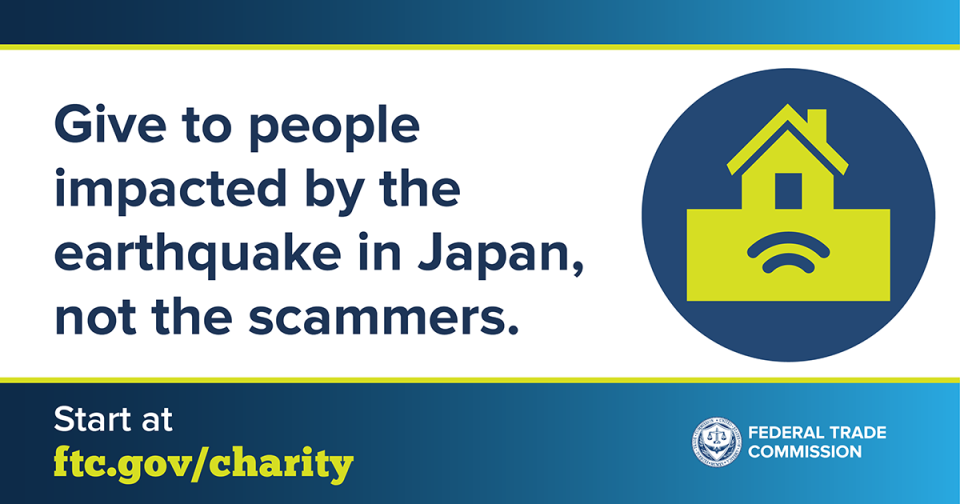Donating is a great way to help people affected by natural disasters like the earthquake that hit Japan on New Years Day. But you know scammers try to take advantage of people recovering, and those who try to help. So, how can you be sure your money goes where it’s needed?
Scammers often create fake charities that sound and look legit or claim to work with well-known organizations. But here’s how to ensure your donation doesn’t end up in the hands of scammers.
- Do some research. Before giving money or your information, check online the name of the charity plus words like “review,” “scam,” or “complaint.” And use charity watchdog groups to see what information they have about the organization.
- Check the fees and timing when donating through an online platform or social media. Will your donation go directly to the charity?
- Refuse to donate if someone tells you that wiring money, putting money on a gift card, sending cryptocurrency, using a payment app, or giving cash is the only way to give money. That’s how scammers want you to pay.
- Learn more about giving and how to spot and avoid charity scams at ftc.gov/charity.
Requests for donations in multiple languages are common following international disasters. Suspect a charity scam? Tell the FTC at ReportFraud.ftc.gov or in Spanish at ReporteFraude.ftc.gov. To file a report in other languages, call 877-382-4357 and press 3 to select your preferred language.


You are doing the public a great service.